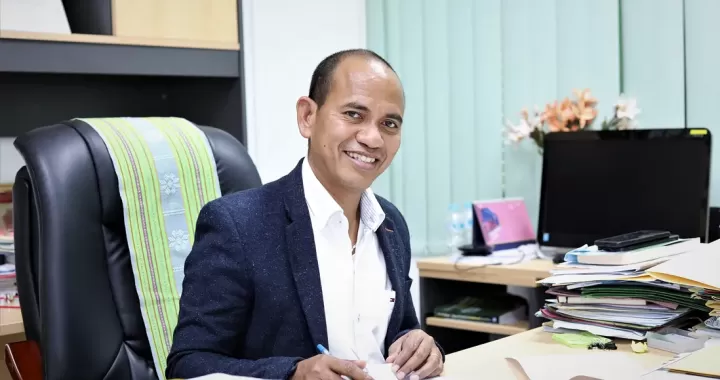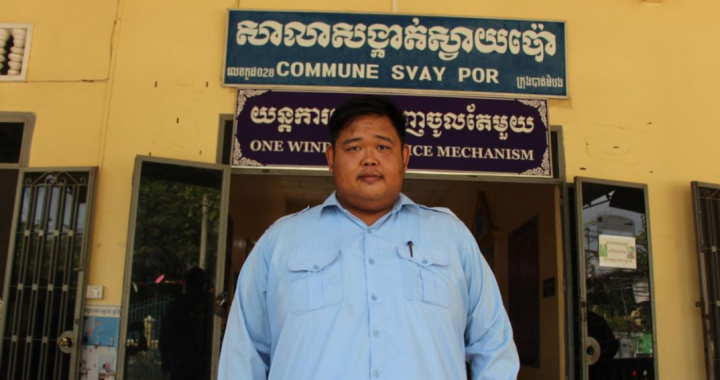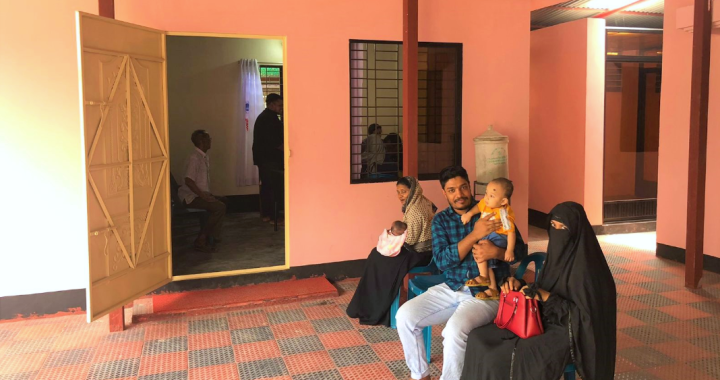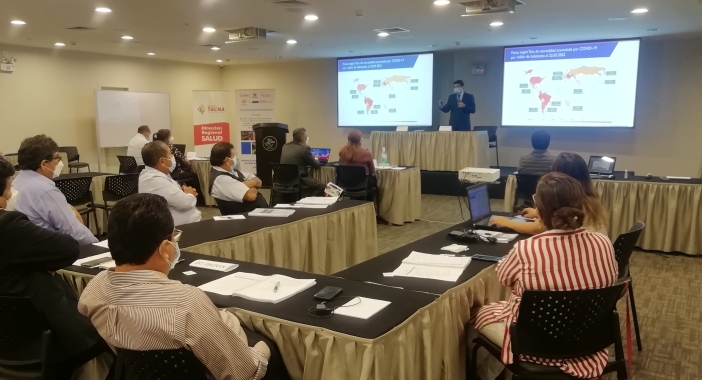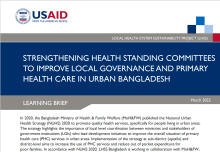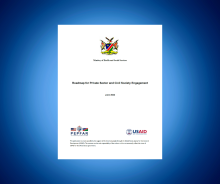Localization
The LHSS approach aligns with current thinking about delivering technical assistance in a way that embraces localization—appreciating the knowledge and experience of local actors and engaging them to lead effective, equitable, and sustainable actions for better health outcomes. The LHSS approach follows local priorities and works together with local actors to assess, create, and implement solutions to health system challenges. It acknowledges that the design and implementation of interventions must consider the local context, including enabling factors and risks posed by institutional aspects of power and politics. (Cox and Norrington-Davies)
Knowledge Products
This brief highlights learnings from working with local government leaders of two city corporations and ten district-level municipalities from the Rajshahi and Sylhet divisions in Bangladesh.
The Namibian government has a long history of working with the private sector to deliver essential health services. However, the engagement between the Ministry of Health and Social Services (MOHSS) and private sector actors within the health sector is mostly through ad hoc interactions during national campaigns, planning processes and service delivery. Thus, there is a need for more-coordinated and more-strategic engagement to effectively leverage the private sector's capacity and strategically position the private sector’s role in advancing universal health coverage (UHC).
Local leaders share valuable perspectives on migration and the role of a robust health systems in enhancing equitable access to quality health care for everyone.
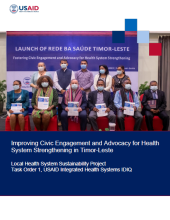
The USAID Activity and REBAS-TL have co-developed a pathway describing how the network can evolve into a trusted and effective collaboration and best represent the community’s voice across health issues. This document captures this pathway plan, progress so far, and next steps.
This workshop marks a significant step towards enhancing health care in urban Bangladesh by uniting the Local Government Division, 11 municipalities, and 3 city corporations in a shared commitment to improve access and effectiveness of primary health care delivery.
The case study shows the literature and previous work on health equity to identify promising approaches and strategies from Senegal’s experience to ensure more equitable financial protection, particularly for underserved and socially excluded populations.



